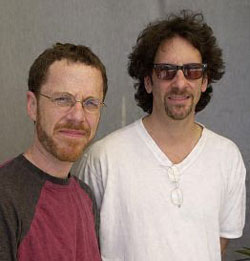 "Football season's over. No More Games. No More Bombs. No More Walking. No More Fun. No More Swimming. 67. That is 17 years past 50. 17 more than I needed or wanted. Boring. I am always bitchy. No Fun — for anybody. 67. You are getting Greedy. Act your old age. Relax — This won't hurt."
"Football season's over. No More Games. No More Bombs. No More Walking. No More Fun. No More Swimming. 67. That is 17 years past 50. 17 more than I needed or wanted. Boring. I am always bitchy. No Fun — for anybody. 67. You are getting Greedy. Act your old age. Relax — This won't hurt." -Hunter S. Thompson's Suicide Note
Has there ever been a voice as confused yet clear; bizarre yet brilliant; as relevant as the voice of Dr. Hunter S. Thompson? No, there hasn't been. I may seem biased because Hunter S. Thompson is one of my idols, but you don't even have to know the name of Hunter S. Thompson to know that "Gonzo" is one of the best documentaries made in a long while. However, if you do know his name, it would definitely help.
The name Gonzo was the name of the form of journalism Thompson invented. It was a form of journalism in which the writer literally threw himself into the middle of the action they were covering and the events happening around the event they were supposed to be covering often became more important than the actual event.
"Gonzo" traces back to the humble beginnings of Thompson's radicalism, finding it at the 1968 Democratic Convention, where Thompson's main focus became the rioters outside rather than the speech of Hubert Humphrey inside.
The movie is not so much a chronicle of Thompson's entire life. It briefly touches on Thompson's childhood in Louisville, but only uses it reveal his persona as a true outsider. The rest of "Gonzo" chronicles the rise, fall, and legacy of Thompson. It shows how this one man changed how we view writing, journalism, and the American Dream forever.
"Gonzo" achieves this through interviews with people who knew Thompson all too well, and those who knew him so little, yet could never get enough of him. Director Alex Gibney uses archival footage amazingly, revealing footage of Thompson the world might not have seen otherwise. There's footage of Thompson doing drugs, being interviewed, and even swimming with dolphins. It is footage that goes beyond the usual insanity that shrouds Thompson's image and shows that he was above all, just a normal guy. He might've been normal, but he was still nothing short of ordinary.
The film is not all archival footage, it often contains readings of Thompson's brilliant writing. Those writings are read out by Johnny Depp, who so flawlessly portrayed Thompson in the film adaptation of "Fear and Loathing in Las Vegas." The film often contains some reenactments of past events, which are almost as well handled as anything Errol Morris did in "The Thin Blue Line."
The film, at times, doesn't feel like a documentary. It often lets Thompson speak for himself. We get to listen to Thompson chronicle every major event of the last 40 years from Watergate to 9/11. Through these events (and Thompson's opinions on them), the film forms a kind of chronology, and Thompson's words guide the course of film. There honestly could not have been a better way to bring such meaning to his writing.
If Thompson were still alive today, he would be proud of "Gonzo." He would be proud that it is not just a film about him but for him. It portrays Nixon as a villain and displays a soundtrack full of Bob Dylan. If Thompson made a film about himself, this is surely what it would be like.
"Gonzo" is about a man who had a passion for sex, guns, and drugs, yet wasn't a bad man. It's about a man who was an outsider, yet shaped the political discourse of the last half of the 20th century. The best documentaries look past the flaws of the people they portray, and show what they did to truly impact the world. As the film ends with Thompson's ashes being shot out of a cannon, he was not just being shot into the sky, but into eternity; into the realms of immortality.
















